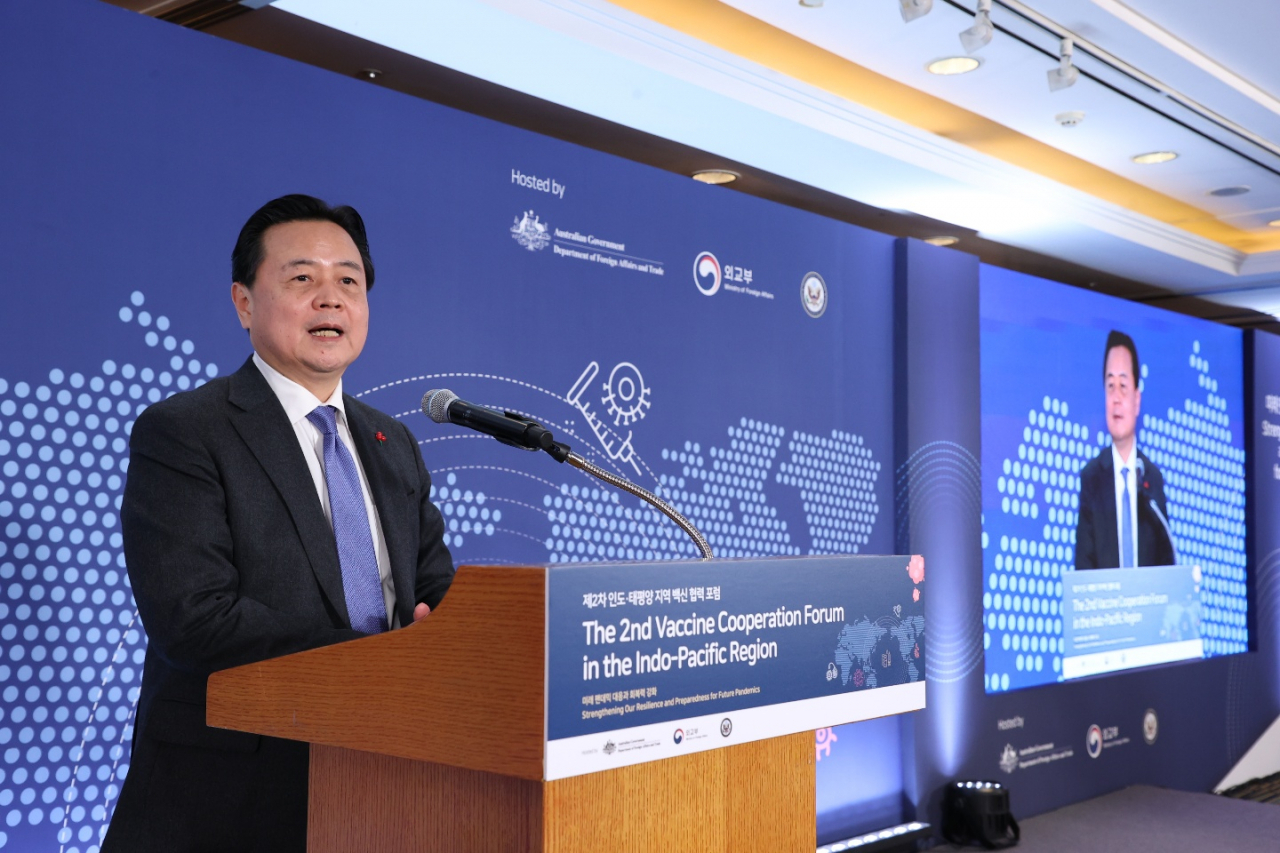Asian health experts debate how to combat pandemics
By Choi Si-youngPublished : Dec. 7, 2022 - 18:28

Health experts in Asia -- regulatory officials, practitioners and consultants -- discussed how the lessons learned from the COVID-19 could help them to coordinate a more effective response to fight off pandemics to come, at a forum held in Seoul on Wednesday.
Keynote speaker Tore Godal -- founding chief executive of Gavi, a global vaccine alliance that works on increasing access to immunization in poor countries -- kicked off the annual Vaccine Cooperation Forum in the Indo-Pacific Region, cohosted by the South Korean and Australian foreign ministries and the US Department of State for the second time.
Godal called for a global treaty on pandemics to ensure a stronger united front to guarantee “equitable access to vaccines” and to “combat any outbreak.”
South Korean vaccine maker SK Bioscience was one of leading companies that showed how the private sector can work with public agencies like the World Health Organization (WHO), Godal noted, referring to the International Vaccine Institute (IVI) and the Coalition for Epidemic Preparedness Innovations (CEPI) as embodying public-private partnership.
Sunate Chuenkitmongko, deputy director of Thailand’s National Vaccine Institute, stressed that equitable vaccine access hinges on not only cultivating a strong local workforce capable of producing vaccines but building a framework that connects such workforces across the region.
Universal vaccine access requires that “countries enhance the transfer of knowledge and technology” to learn about the vaccine efficacy, said Prima Yosephine Berliana Tumiur, acting director of Indonesia’s Health Ministry and chair of its immunization directorate.
To make that happen, training medical personnel while putting up necessary infrastructure should follow, Berliana Tumiur added. And such catch-up efforts will accelerate “mastering the latest RNA vaccine technology,” according to the top health official.
Meanwhile, Riamiza Natalie Haji Momin -- a Bruneian consultant who advises on infectious diseases at the country’s Health Ministry -- highlighted “looking outwards and within” at the same time to ride out any future outbreaks.
Haji Momin shared her country’s successful handling of the COVID-19 pandemic, which she said was brought to under control in part by a mobile app that helped people with vaccinations. A walk-in system designed to look after the elderly who could not use the app themselves was enforced in parallel, she added.
And outreach to other Southeast Asian countries for vaccines and know-how in producing them was just as pivotal in dealing with the pandemic, according to the health consultant, who suggested the region come together for a global health emergency.
Echoing a similar sentiment, Kim Hyunsook -- vice chief at South Korea’s Health Ministry who leads its global vaccine hub office -- said the WHO-supported program to train specialists who can better aid both the rich and poor countries in tackling a global health crisis is one of the “next steps” for the international community.
South Korea’s first vice foreign minister, Cho Hyun-dong, welcomed the annual gathering, calling ideas and partnerships the forum brings forth a “promising sign” for deeper cooperation ahead.
“By promoting cooperation and partnerships for improved health security and resilience, Korea aims to contribute to building a safer and more prosperous Indo-Pacific region,” Cho said.
The forum invited 16 journalists from Asia News Network member publications. Headquartered in Singapore, ANN is a coalition of 24 news organizations from Asia, including The Korea Herald.
-
Articles by Choi Si-young



















![[Today’s K-pop] Treasure to publish magazine for debut anniversary](http://res.heraldm.com/phpwas/restmb_idxmake.php?idx=642&simg=/content/image/2024/07/26/20240726050551_0.jpg&u=)